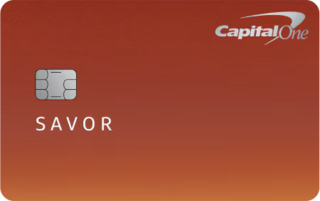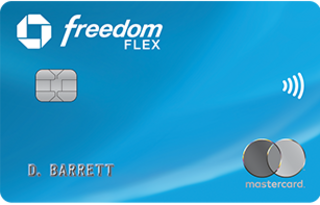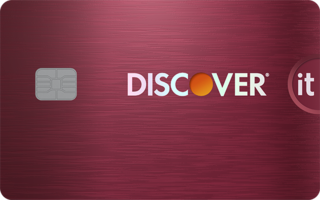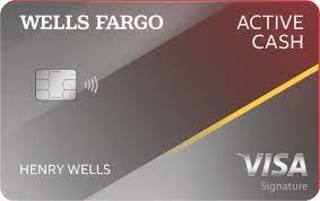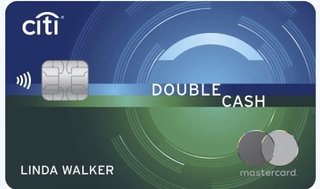Best Cash Back Credit Cards of 2025
Money.com has partnered with CardRatings.com for our coverage of credit card products. Money and CardRatings may receive a commission from card issuers. Our site does not include all card companies or all available card offers.
Getting something back for your everyday purchases is probably one of the best reasons to use a credit card. While most cards on the market offer a variety of rewards and perks, the best cash back credit cards will reward you in an easy, tangible way: by giving you a fixed percentage of what you spend, delivered right to your account or, in some cases, your door in the form of a check.
Read our guide to find out which cards offer the highest cash back rates and choose the right one for you.
Our Top Picks for Cash Back Credit Cards of 2025
- Blue Cash Preferred® Card from American Express — Best Overall
- Chase Freedom Flex® — Best for Flexible Rewards
- Discover it® Cash Back — Best for First Year Bonus
- Wells Fargo Active Cash® Card — Best for Unlimited 2% Rewards
- Citi® Double Cash Card — Best for Double Cash Back
Best Cash Back Credit Cards Reviews
- 6% back on eligible purchases at U.S. supermarkets up to the first $6,000 each year (1% thereafter)
- 6% back on select U.S. streaming subscriptions
- 3% back on transit (including public transportation, taxis, and more)
- $0 intro annual fee for the first year, then $95.
Terms apply. Click here for rates and fees.
- Insurance and protection
- Car rental loss and damage insurance, purchase protection and return protection*
Intro APR: 0% on purchases for 12 months and 0% on balance transfers for 12 months│ Regular APR: 19.49% - 28.49% Variable│ Annual Fee: $0 intro annual fee for the first year, then $95.
Why we chose it: The Blue Cash Preferred® Card from American Express offers incredibly high rewards, especially when it comes to groceries and transportation.
The Blue Cash Preferred® Card from American Express offers one of the highest cash back rates in several spending categories.
- 6% back at eligible U.S. supermarkets up to the first $6,000 spent per year (1% thereafter)
- 6% back on select U.S. streaming subscriptions (including Netflix, Hulu and more)
- 3% back at eligible U.S. gas stations and on transit-related purchases (including taxis/rideshare, parking, tolls, trains, buses and more)
- 1% back on eligible purchases
- Terms apply
Although there’s no annual fee for the first year, it is $95 after that. However, the high rate of cash back in everyday spending categories can help offset the annual fee. Plus, if you need to transfer a balance or make a large purchase, the card offers a 0% introductory APR for 12 months (then 19.49% - 28.49% Variable).
- 5% back on rotating quarterly categories (up to $1,500 per quarter, then 1%)
- Unlimited 5% back on travel through Chase Ultimate Rewards®
- 3% cash back on dining and drugstore purchases. 1% on all other purchases
- No annual fee
- Lower rate in other common everyday categories
- Annual fee
- $0
- Insurance and protection
- Purchase protection, extended warranty, trip cancellation/interruption insurance, cell phone protection, rental collision waiver
Why we chose it: The Chase Freedom Flex® offers one of the highest rates —5% on quarterly categories— and has no annual fee, easily making it one of the best cash back cards available.
The Chase Freedom Flex® Credit Card has quarterly rotating categories, but also offers:
- 5% back on quarterly bonus categories (up to $1,5000 on combined purchases in the quarterly categories)
- Unlimited 5% back on travel booked through Chase Ultimate Rewards®
- Unlimited 3% back on dining at restaurants (including takeout and eligible delivery services)
- Unlimited 3% back on drugstore purchases
- Unlimited 1% back on all other qualifying purchases
The categories for each quarter are based on Chase’s cash back calendar; for example, you could get 5% back on gas one quarter, followed by the same rate of rewards on purchases at Amazon the next.
It also offers a 0% introductory APR for 12 months from account opening on purchases and qualifying balance transfers —then, variable APR will be 19.24%, 24.24% or 29.24%— as well as significant insurance coverage, which is rare for cards with no annual fee. It has trip cancellation and delay insurance, cell phone protection, extended warranties, purchase protection and more.
All information about the Chase Freedom Flex®Credit Card has been collected independently by Money.com. It has not been reviewed or provided by the issuer.
- 5% cash back in quarterly categories
- Cashback Match™: Discover will match all the cash back you earn at the end of your first year
- No annual fee
- Limited bonus categories
- Welcome Offer
- Cashback Match™: Discover will automatically match all the cash back you’ve earned at the end of your first year.
- Intro APR
- 0% on purchases and balance transfers for 15 months and 3% Intro Balance Transfer Fee until May 10, 2025. Then 18.24% to 27.24%.
- Regular APR
- Variable APR 18.24% to 27.24% based on creditworthiness.
Why we chose this card: The Discover it® Cash Back Card is ideal for those looking to maximize rewards on rotating categories without paying an annual fee. The Cashback Match™ feature can double your first year's rewards, making it particularly valuable for new cardmembers.
It also offers flexibility with its rotating categories, allowing you to earn in the categories you spend the most. If you don't mind activating the categories quarterly, you’ll rack up the cash back, especially during the first year with the Cashback Match™. The card also offers a 0% introductory rate as well as free credit score monitoring.
All information about the Discover it® Cash Back Credit Card has been collected independently by Money.com. It has not been reviewed or provided by the issuer.
- Unlimited 2% cash rewards on all purchases with no categories to track
- No annual fee
- No bonus rewards outside of a 2% flat rate
- Welcome Offer
- Earn $200 cash rewards after spending $500 in the first 3 months.
- Intro APR
- 0% intro APR for 12 months from account opening on purchases and qualifying balance transfers. After that, your variable APR will be 19.24%, 24.24% or 29.24%.
- Regular APR
- Variable APR 19.24%, 24.24% or 29.24% based on creditworthiness.
Why we chose this card: The Wells Fargo Active Cash® Card is perfect for its simplicity and high earning potential without category restrictions. Its straightforward 2% rewards on all purchases make it a reliable choice for everyday use.
Unlike other cards that offer higher cash back rates for certain categories like groceries and gas, this card offers a hassle-free experience and consistent rewards across all spending. It also offers a 0% introductory APR in addition to the rewards program.
All information about the Wells Fargo Active Cash® Card has been collected independently by Money.com. It has not been reviewed or provided by the issuer.
- 2% Cash Back: Earn 2% on every purchase – 1% when you buy and 1% when you pay
- No annual fee
- No bonus categories
- 0% intro APR only on balance transfers
- Welcome Offer
- Earn $200 cash back after you spend $1,500 on purchases in the first 6 months of account opening.
- Intro APR
- 0% APR for 18 months for balance transfers (then, a variable APR of 18.24% - 28.24%)
- Regular APR
- Variable APR of 18.24% - 28.24% based on creditworthiness
Why we chose this card: The Citi Double Cash® Card is a standout option for those seeking straightforward rewards with no hassle. Its consistent 2% cash back on every purchase is a simple flat rate of rewards on all spending.
For consumers who prefer earning rewards on all purchases without worrying about activating categories, this card offers 2% — double the default 1% you would earn with other cash back credit cards. Plus, like the other great cash back cards, it offers an introductory APR on balance transfers that can help you save money on interest.
All information about the Citi Double Cash® Card has been collected independently by Money.com. It has not been reviewed or provided by the issuer.
Cash Back Credit Cards FAQs
How do cash back credit cards work?
What is the best cash back credit card?
Is cash back taxable?
When does my cash back expire?
How We Chose the Best Cash Back Credit Cards
The best cash back credit cards offer high-value rewards for everyday spending, competitive sign-up bonuses and low or no fees. This methodology evaluates these cards focusing on cash back rates, fee structure and additional benefits.
| Cash Back Rewards | Sign-Up Bonus | Fees | Other Perks |
| 40% | 35% | 20% | 5% |
- Cash Back Rewards: Consistent and straightforward cashback or rewards rate for all purchases rather than categories. Enhanced rewards for everyday spending categories (e.g., groceries, gas).
- Sign-Up Bonus: New cardholders can often earn hefty bonuses with the best cash back credit cards.
- Fees: No-fee cards might include other fees, which can lower its rating.
- Other Perks: Any other perks and benefits the card includes, whether travel, low-interest or building credit.
Read our full methodology here.
Summary of Money’s Best Cash Back Credit Cards of 2025
- Blue Cash Preferred® Card from American Express — Best Overall
- Chase Freedom Flex® — Best for Flexible Rewards
- Discover it® Cash Back — Best for First Year Bonus
- Wells Fargo Active Cash® Card — Best for Unlimited 2% Rewards
- Citi® Double Cash Card — Best for Double Cash Back
To see rates and fees for the Blue Cash Preferred® Card from American Express, visit this link. Terms apply.
* Insurance disclosures for American Express Cards on this page:
Trip Delay Insurance: Eligibility and Benefit level varies by Card. Terms, Conditions and Limitations Apply. Please visit americanexpress.com/benefitsguide for more details. Underwritten by New Hampshire Insurance Company, an AIG Company.
Global Assist Hotline: Eligibility and Benefit level varies by Card. Terms, Conditions and Limitations Apply. Please visit americanexpress.com/benefitsguide for more details. Card Members are responsible for the costs charged by third-party service providers.
Extended Warranty, Purchase Protection, Baggage Insurance Plan: Eligibility and Benefit level varies by Card. Terms, Conditions and Limitations Apply. Please visit americanexpress.com/benefitsguide for more details. Underwritten by AMEX Assurance Company.
Car Rental Loss & Damage Insurance: Eligibility and Benefit level varies by Card. Terms, Conditions and Limitations Apply. Please visit americanexpress.com/benefitsguide for more details. Underwritten by AMEX Assurance Company. Car Rental Loss or Damage Coverage is offered through American Express Travel Related Services Company, Inc.
Money.com may receive a commission from card issuers. Some or all of the card offers that appear on Money.com are from advertisers and may impact how and where card products appear on the site. Money.com does not include all card companies or all available card offers.



